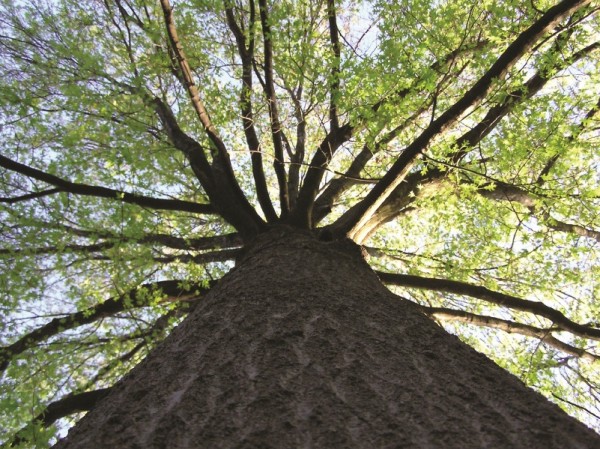Our Roots are in Research: A Brief History of Dimensions Educational Research Foundation

We like to think of Dimensions Educational Research Foundation as a wise old oak tree with deep roots in research that feed the whole organization and inform the work of those in our broad network.
At Dimensions we are serious about children’s learning. We understand the value of quality care and education during the early years and recognize that it is through close observation of children that we learn and grow as educators. We take this research seriously so that children don’t have to; we want their days and yours to be playful and joyous.
In 1996, Dimensions Education Programs initiated a research project in collaboration with the University of Nebraska-Lincoln that investigated visual-spatial learning in preschool and elementary-aged children. The research also explored teacher interventions that might address children’s behaviors in light of the rise in diagnoses of attention deficit disorders and other similar behavioral challenges. Soon, researchers began identifying a positive link between time spent outdoors in nature-filled settings and children’s calmer, more focused behavior. Researchers also identified links between natural outdoor learning and children’s increased skill development in all areas.
As the project received more funding, its scope grew and in 1998 a team of researchers and educators formed the Dimensions Educational Research Foundation. Research was conducted collaboratively with the University of Nebraska-Lincoln as Dimensions Education Programs faculty attended education programs at UNL and worked with professionals from diverse specialties such as architecture, music, mathematics and kinesthesiology. This early collaboration led to the formation of an expanded multi-disciplinary team that included the addition of professionals such as neuropsychologists, landscape architects, professors of early childhood special education, teacher-educators and both qualitative and quantitative researchers.
The research then grew to include collaborations with other colleges and universities. The cornerstone of all of Dimensions Foundation work is the use of a rigorous research methodology that is based on close observation of children over time. As research began pointing more to the comprehensive benefits children received from spending time learning in and with nature, the focus of the research steered more singularly in that direction.
Soon thereafter, the Foundation began partnering with the Arbor Day Foundation and the national Nature Explore program was launched as an initiative of both Dimensions Foundation and Arbor Day. Our original Dimensions research work remains grounded in close observation of children. Our model relies on the expertise of teachers who are trained in early childhood development and qualitative research—individuals who know children well and are reflective practitioners striving to create opportunities to learn and grow themselves along with the children and families they serve.
Current major research initiatives include a multi-year study conducted by the University of Wisconsin, to assess the effectiveness of Certified Nature Explore Classrooms and Outdoor Classroom Project sites. This research is an expanded version of a pilot study conducted by Dr. Sam Dennis and colleagues from the University of Wisconsin’s Environmental Design Laboratory. An advisory board for this study includes researchers from Yale University and the University of Illinois and from organizations such as the U.S. Forest Service and the National Head Start office.
 In the coming weeks, we will be rolling out an eight-part blog series synthesizing our research for use by classrooms around the world. It is our sincere hope that this distillation of our roots of research will inform your teaching and ignite ideas for your Nature Explore Classrooms. In our work we use qualitative research methods implemented by well-trained teachers who are life-long learners themselves. These educators, like you, are thirsty for information they can use to inform their craft. Over the years, they have practiced the cycle of teaching, reflecting, and documenting. This is used to inform daily practice in our own Dimensions Education Program in Lincoln, Nebraska, as well as our other research sites and Nature Explore.
In the coming weeks, we will be rolling out an eight-part blog series synthesizing our research for use by classrooms around the world. It is our sincere hope that this distillation of our roots of research will inform your teaching and ignite ideas for your Nature Explore Classrooms. In our work we use qualitative research methods implemented by well-trained teachers who are life-long learners themselves. These educators, like you, are thirsty for information they can use to inform their craft. Over the years, they have practiced the cycle of teaching, reflecting, and documenting. This is used to inform daily practice in our own Dimensions Education Program in Lincoln, Nebraska, as well as our other research sites and Nature Explore.
We hope you join this journey. We invite you to learn with us and use our research to branch out in your own practice. In other words, we welcome you as part of our family tree.

